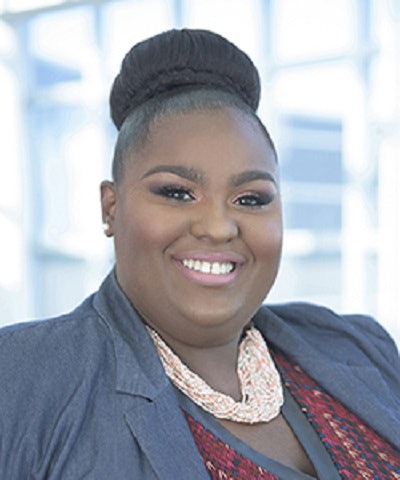COVID-19 sent shock waves around the nation as residents throughout the United States braced for the fallout of this pandemic. To date close to hundreds upon thousands of Americans in all fifty states have contracted the virus. Worse, lives have been shattered by the untimely deaths of loved ones suddenly stricken with failed respiratory systems. Similarly, once gainfully employed workers are now economically distressed. That is to say, some 22 million Americans have applied for unemployment insurance. Overall, the nation’s system of going about our normal daily lives has forever changed. Yet when we emerge from the shadows of what will be historically categorized as a dark moment in time for the entire world, how will everyday people go about rebuilding facets of their lives?
 Dr. Amanda Wilkerson
Dr. Amanda WilkersonOn March 6, I boarded a plane from New York to Orlando to finish the last leg of two weeks’ worth of professional travel. As I flew back home, secretly I wondered if I had contracted the contagious virus during my travels. Days after landing, I was ill. During spring break, I remained inside and away from my loved ones. Primarily to protect myself but also, I did not want my mother, who had just beat cancer to unintentionally be infected by something that could ultimately kill her. In truth, I never knew my status. Tests for the virus were not readily available, so my prescription to beat my tiredness, headaches, and fear was prayer. The fact is I will never truly know.
As I got better, things around the nation began to get worse. Education is one area for which the new normal was painfully evidenced. The pandemic has closed down more than 13,000 school districts and thousands of post-secondary institutions. Additionally, millions of learners were forced to remotely access knowledge through click and connect functions. For me, all of the new changes hit a little closer to home. I saw my sisters continue to work on the frontlines in various roles. One as a cashier at Walmart, the others, a part-time uber eats driver and an essential worker with the Florida toll system. Each was interacting with people, unknowingly putting themselves at risk just to be able to suitably provide for themselves and their families.
Meanwhile, as a first-year faculty member at a research one institution, my new work conditions were different. I was offered the opportunity to attempt to teach and continue to conduct aspects of my research at home. My work conditions meant I could safely adhere to the shelter in place orders absent of the fear that to provide for myself I would be susceptible to succumbing to illness that has disproportionately impacted my community, the African- American community.
The challenge for me is not that my new normal changed my work conditions. Frankly speaking, I am okay with not having the corner office. I am also okay that I don’t have dual computer screens, or access to unlimited printing, a research assistant, and the like. In contrast, I am not okay with having the freedom to live-safely, while my siblings whom I love very much, make the difficult decision every day to be passive proxies for preserving the nation, even at the risk of possibly losing their lives. The ferocious disparities that exist within my own family are a microcosm of the modern realities of others around the country.
As a result, I am choosing to be just as brave as my sisters. To counteract my frustrations regarding the risks they take every day, I plan to be a professor and a public servant, partnering with the community to be an architect that builds a new American educational system. My calling won’t just be palatable within the hallowed halls of college corridors but on the frontlines of the community for which my sisters work and we all live in. I will be rebuilding this system not just as or for Dr. Wilkerson, but as a sister and a scholar for Vera, Cynthia, Vanessa and many others who have inspired me with their fearlessness to work on the frontlines of this global pandemic right in our community. To be this kind of new educational architect, the work cannot be done in isolation. It is imperative that higher educators be a force as we all endeavor to build and promote a robust and just new education system.
Dr. Amanda Wilkerson is an assistant professor in the College of Community Innovation and Education at the University of Central Florida.



















